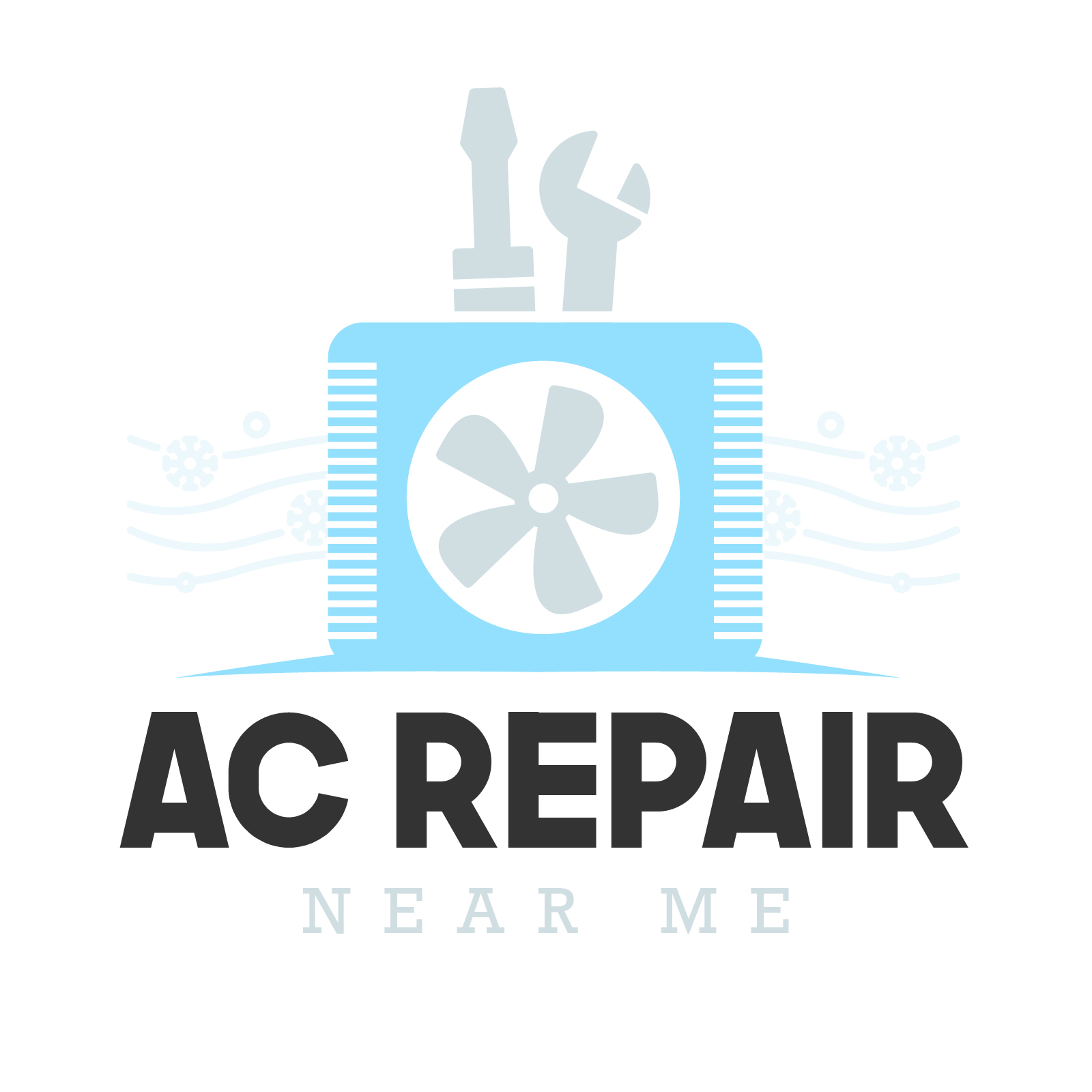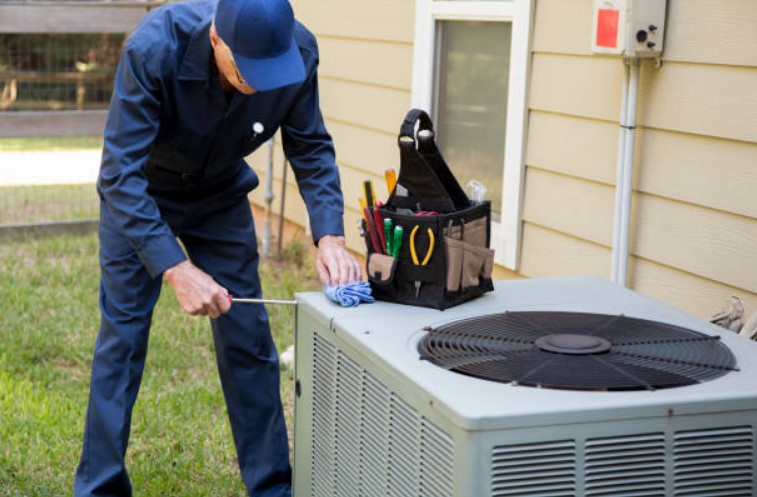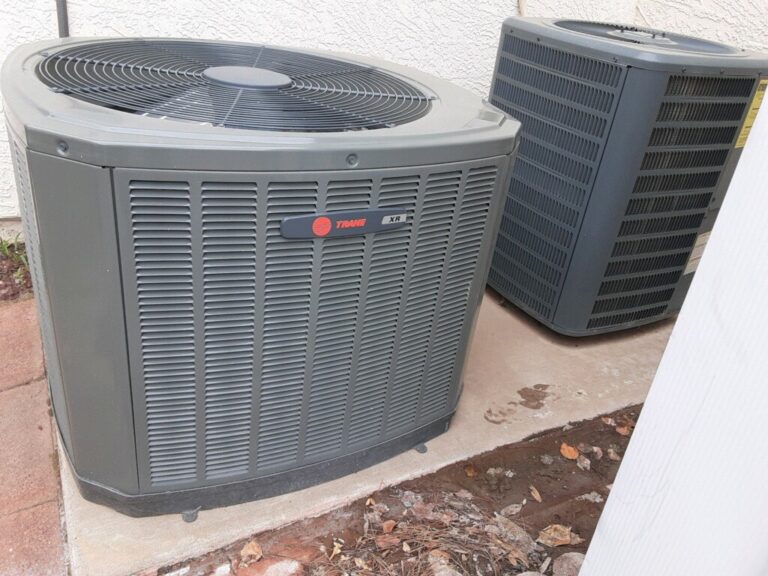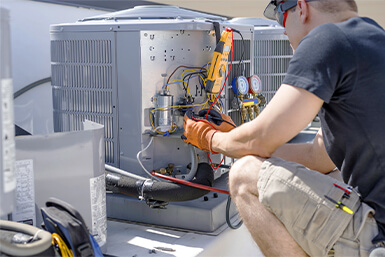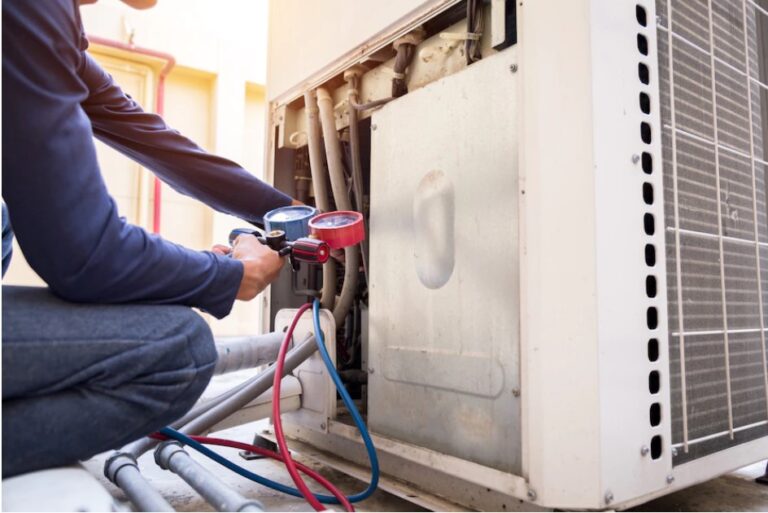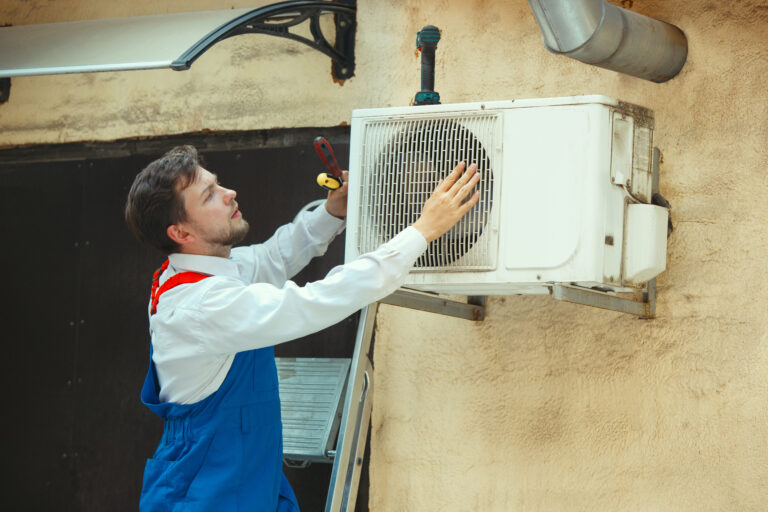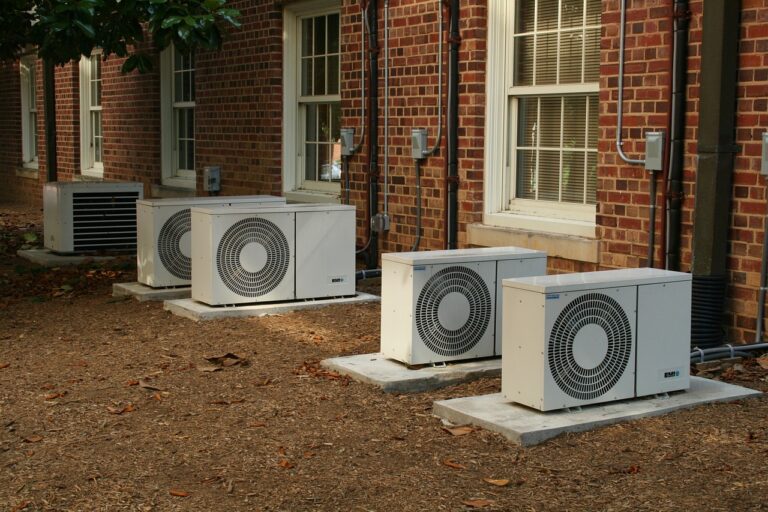Tips on how to repair your air conditioner by yourself
Why you should repair your air conditioner
When the weather outside is hot and humid, the last thing you want is for your air conditioner to stop working. But when it does, you might be tempted to put off repairing it, thinking it will be expensive. However, there are some air conditioner repair tips you can do yourself that can save you money.
One of the most common problems with air conditioners is that they freeze up. This can happen for several reasons, such as a dirty filter or low refrigerant levels. If your air conditioner has frozen up, turn it off and unplug it. Then, check the filter and clean or replace it if necessary. You should also check the refrigerant levels and add more if needed. Once you’ve done these things, turn the air conditioner back on and see if it works properly.
Another common issue is that the air conditioner isn’t blowing cold air. This could be because of a problem with the condenser coils or evaporator coils. These coils need to be cleaned regularly to prevent build-up of dirt and debris. You can clean them yourself with a brush or cloth, or you can hire a professional to do it for you.
If your air conditioner isn’t working at all, there could be an issue with the electrical connection or fuse box. First, check to make sure all connections are tight and secure. Then, check the fuse box to see if any fuses have blown; if so, replace them with new ones of the same amperage rating. If neither of these solutions fixes the problem, then you’ll need to call in a professional for help troubleshooting further issues
Tips on how to repair your air conditioner
If your air conditioner is on the fritz, you’re not alone. In fact, one in five Americans will experience a problem with their AC this year, according to Energy Star.
Fortunately, there are some air conditioner repair tips you can do yourself to get your AC up and running again. While it’s always best to leave complex repairs to the professionals, there are a few simple things you can do to troubleshoot your AC and get it working again.
First, check your thermostat to make sure it’s set to “cool” and that the temperature is set lower than the current room temperature. If that doesn’t solve the problem, try these other air conditioner repair tips:
– Check the condenser coils (the outdoor unit) and make sure they’re clean and free of debris. If they’re dirty, clean them with a garden hose or brush them with a soft bristled brush.
– Make sure all the registers in your home are open and unobstructed so air can flow freely throughout the house.
– Inspect your ductwork for leaks or holes and seal any that you find. Leaky ductwork can decrease the efficiency of your AC by as much as 20%.
– Change your filter! A dirty filter will restrict airflow and make your AC work harder than it needs to.
Hopefully these tips will help you get your air conditioner back up and running smoothly!
When to call a professional for help
There are some air conditioner repair tips you can do yourself, but sometimes it is best to call a professional. If your air conditioner is not blowing cold air, the first thing you should check is the thermostat. Make sure it is set to “cool” and that the temperature setting is lower than the current room temperature. If the problem persists, check for debris in the condenser unit outside. Be sure to turn off the power to the unit before cleaning it out. If your air conditioner is still not working properly, it may be low on refrigerant. This is a job for a professional technician, as adding refrigerant can be dangerous if not done correctly.
How to prevent air conditioner problems
We all know how important it is to have a working air conditioner, especially during the hot summer months. But did you know that there are some simple things you can do to prevent your air conditioner from breaking down? By following these tips, you can keep your AC running smoothly for years to come.
1. Change the air filter regularly. This is one of the most important things you can do to maintain your air conditioner. A dirty air filter will restrict airflow and cause your AC to work harder than it needs to. As a general rule, you should change your air filter every 1-3 months.
2. Keep the area around your AC unit clear. Your AC needs good airflow in order to work properly, so make sure there’s nothing blocking the vents or intake grille. If you have plants near your unit, trim them back so they don’t obstruct airflow.
3. Clean the coils on your AC unit regularly. The coils play an important role in cooling the refrigerant, so it’s important to keep them clean and free of dirt and debris. You can clean them yourself with a brush or cloth, or hire a professional to do it for you.
4 Schedule annual maintenance with a professional HVAC contractor An annual tune-up will help ensure that your AC unit is running at peak efficiency and catch any potential problems before they become serious issues..
AC repair cost considerations
As the weather gets warmer, many of us start to think about how we can keep our homes cool and comfortable during the summer months. One option is to install or repair an air conditioner. However, before you make any decisions, it’s important to consider the potential cost of AC repair.
If your air conditioner is in need of repairs, the first thing you’ll want to do is call a professional for an estimate. Be sure to get multiple estimates from different companies so that you can compare prices. Once you have a few estimates, you can start to look at other factors that may affect the cost of your AC repair.
For example, if your air conditioner is older and needs more extensive repairs, it will likely be more expensive than if it was newer and needed only minor repairs. Additionally, if you live in an area with a high demand for AC repairs (due to hot weather), you may end up paying more than if you lived in a cooler climate where there wasn’t as much demand.
Of course, the best way to avoid costly AC repairs is to prevent them from happening in the first place. Some simple tips include regularly changing your air filter, making sure nothing is blocking your vents, and having your system serviced by a professional once a year. By following these tips, you can help keep your air conditioner running smoothly for years to come – and save yourself some money in the process!
Do-it-yourself AC repair tips
If you’re like most people, the thought of having to repair your own air conditioner is enough to send a chill down your spine. After all, AC repair is notoriously expensive and complex, right? Wrong! With a little know-how and some basic tools, you can actually perform many air conditioner repairs yourself, saving time and money in the process.
So before you pick up the phone to schedule an expensive service call, take a look at these simple AC repair tips that almost anyone can do. From fixing common problems like leaks and drainage issues to troubleshooting more complex issues like compressor failure, we’ve got you covered. So read on and learn how to keep your cool this summer – without breaking the bank!
1. Check for Leaks: One of the most common problems with air conditioners is leaks. These can occur in both the unit itself as well as in the ductwork that carries cooled air into your home. If left unchecked, leaks can cause serious damage to your AC system and lead to sky-high utility bills. Fortunately, they’re relatively easy to fix.
2. Start by inspecting your unit for any obvious signs of leakage. If you see water pooling around the base of the unit or dripping from any of the pipes or connections, chances are you have a leak. Once you’ve located the source of the leak, simply tighten any loose connections or replaced damaged seals using a sealant kit (available at most hardware stores).
3. Clear Debris from Your Unit’s Outdoor Condenser Coil. The outdoor condenser coil is one of the most important parts of your AC system; it’s responsible for dissipating heat away from your home using fans and coils filled with refrigerant gas. Unfortunately, it’s also susceptible to build-up over time due debris like leaves and dirt getting caught in its fins (the metal vanes that surround the coil). When this happens, heat transfer is inhibited and your unit has to work harder than normal – which not only reduces its efficiency but also puts unnecessary strain on its components which could lead to costly repairs down the road
Hiring a professional AC repair company
If your air conditioner has stopped working, it’s important to hire a professional AC repair company to fix the problem. While there are some air conditioner repair tips you can do yourself, it’s best to leave the heavy lifting to the professionals. Here are four reasons why:
1. They have the experience and expertise.
AC repair companies have been fixing air conditioners for years, so they know exactly what needs to be done to get yours up and running again. Plus, they have all the necessary tools and equipment to do the job right.
2. They can troubleshoot the problem quickly.
Trying to figure out what’s wrong with your air conditioner on your own can take hours, if not days. But a professional AC repair company will be able to diagnose the problem quickly and get started on fixing it right away.
3. They offer a warranty on their workmanship. Most reputable AC repair companies offer a warranty on their workmanship, so you can rest assured that the job will be done right the first time around. If something does go wrong, you know you’ll be covered.
4 .They’ll save you time and money in the long run . In most cases, hiring a professional AC repair company will actually save you time and money in the long run because they’ll fix the problem correctly the first time around
How to find a good AC repair company
If you’re like most people, you rely on your air conditioner to keep your home cool and comfortable during the hottest months of the year. But when your AC unit breaks down, it can be a major headache. Fortunately, there are some things you can do to troubleshoot your air conditioner and try to repair it yourself before calling in a professional.
Here are some air conditioner repair tips you can do yourself:
1. Check the thermostat. The first thing you should do when your AC unit breaks down is to check the thermostat. Make sure it’s set to “cool” and that the temperature is set lower than the current room temperature. If the thermostat is set correctly but the unit still isn’t cooling properly, move on to step 2.
2. Check for airflow obstruction. Another common reason for AC units to break down is an airflow obstruction. This can be caused by anything from a dirty filter to a blockage in the ductwork. To check for an airflow obstruction, first make sure that all of the registers in your home are open and unobstructed. Then, take a look at your air filter and replace it if it looks dirty or clogged. Finally, check your ductwork for any blockages or leaks that could be causing an airflow problem.
3 .Check for refrigerant leaks . One of the most common causes of AC breakdowns is a refrigerant leak . When there’s a leak , not enough refrigerant circulates through system , which prevents proper cooling . You’ll usually know if there’s leaking because ice will form around outside unit . If this happens , shut off system immediately and call professional HVAC contractor right away—if left unchecked , leaking refrigerant can cause serious damage to system . While this isn’t something you can fix yourself , having technician come out and repair leak is usually relatively inexpensive .
4- Inspect evaporator coils : Evaporator coils play an important role in removing heat from indoor air ; when they’re covered in dirt or debris , they can’t remove heat as effectively , resulting in poor cooling performance from your AC unit . To clean them , simply remove them ( most evaporator coils are located behind front panels near top of inside part of AC unit )and gently brush away any dirt or debris with soft brush attachment on vacuum cleaner
5 – Look for signs of water damage: If there’s water pooled around outside part of AC unit , that means there’s likely a problem with one of three things : condensate drain line ( which drains water produced during operation ), compressor ( which pumps refrigerant through coils ), or fan motor ( which helps circulate air ). All three require professional repair ; however , if caught early enough , water damage from a condensate drain line issue may only require simple cleaning with household bleach followed by flushing with clean water
6- Tighten electrical connections : Over time electromagnetic vibrations caused by normal operation loosen electrical terminals connected to various components within your AC unit ; if these aren’t tightened periodically they’ll eventually work themselves loose completely and disable part of your system until repaired
